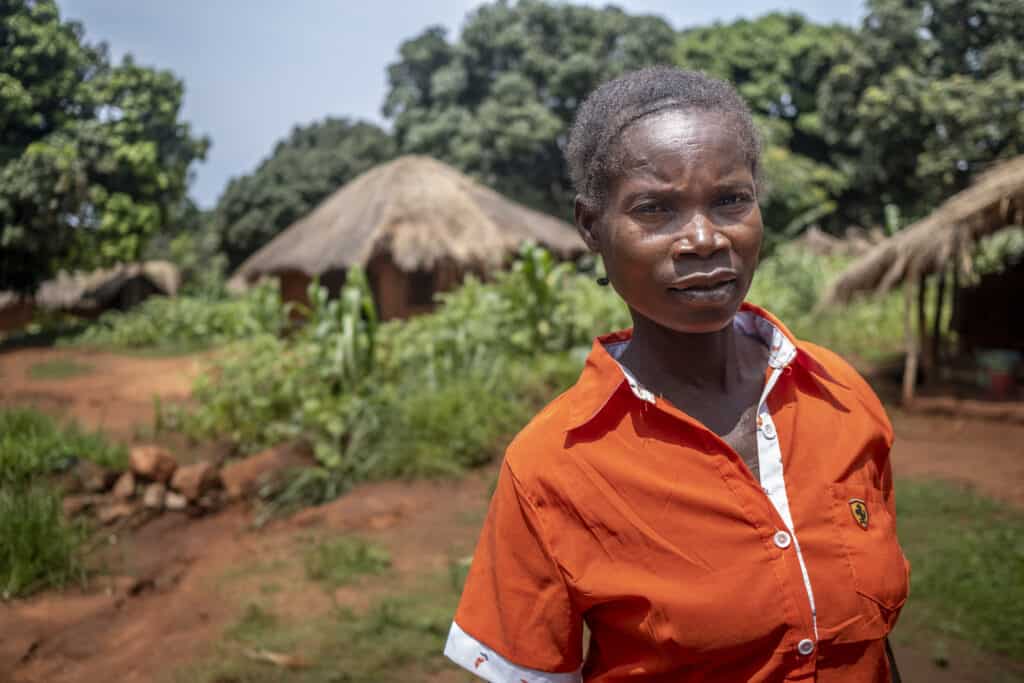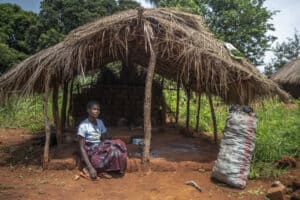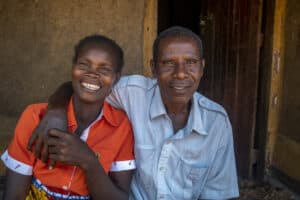Worldwide, at least one million women suffer from fistula. They are women like Everlyn, from Zambia.

A fistula is a hole. An obstetric fistula occurs when a mother has a prolonged, obstructed labor, but doesn’t have access to emergency medical care, such as a C-section. She often labors in excruciating pain for days. Tragically, her baby usually dies.
During a prolonged labor, a woman experiences contractions that continually push a baby’s head against her pelvis. Soft tissues caught between the baby’s head and her pelvic bone become compressed, restricting the normal flow of blood.
Without adequate blood supply, sections of tissue soon die, leaving a hole—known as a “fistula”—between the woman’s vagina and her bladder or rectum. This hole causes her to become incontinent. If the fistula goes untreated, the woman will uncontrollably leak urine or stool (and sometimes both) for the rest of her life.
Women suffering with untreated fistula are some of the world’s most vulnerable individuals. Living primarily in rural areas of Africa and Asia, they endure the burden of debilitating injuries on top of crushing poverty and gender inequality. Stigma and lack of awareness of the condition—in addition to poverty and inadequate healthcare systems—keep fistula surgery out of reach for these women.
Everlyn was in labor for two full days. During the delivery of her child, she didn’t have experienced medical professionals by her side, or a life-saving procedure like a C-section at her disposal. She gave birth at home, in her village.
The constant pressure of her baby’s head on her pelvic tissues caused a hole—a fistula—to form between her vagina and urethra. This hole left her incontinent, and she leaked urine uncontrollably for the next 27 years of her life. Everlyn’s story is not unique.
Nicholas KristofThose with fistula are completely voiceless—young, female, poor, rural, and ostracized. They are the 21st century’s lepers.
Without help, women like Everlyn cannot access the life-transforming surgery that can permanently cure them. They will suffer, alone, until the end of their days.

Through our partners in 27 countries—with support from kind people like you—we work to right this wrong by providing surgeries to women who would otherwise go without.
We work where the need is greatest—in some of the poorest countries in sub-Saharan Africa and Asia. We fund more obstetric fistula surgeries globally than any other organization, and have provided more than 70,000 surgeries in all since 2009.
Our goal is to identify local surgical teams in Africa and Asia that are already successfully treating women with fistula—and then work to amplify their efforts. Listening to their needs allows us to build sustainable medical capacity where it is needed most.
In addition to covering the direct cost of surgery, we also fund surgeon training, invest in facilities and equipment, support community outreach, and provide holistic rehabilitation for healed women.
You can ensure that no woman suffers a life of misery and isolation, simply for trying to bring a child into the world.
Thrift is a core value for us, and we are committed to sending as much money as possible to our partners in the field. We keep our headcount and our operating costs low in our San Jose, California, headquarters. In fact, 84% of our revenue goes to work on the ground, because that’s where women’s lives are changed.
For more than a decade, we have received the highest rating from every nonprofit sector watchdog group. For 16 consecutive years, Fistula Foundation has earned an “exceptional” four-star rating from Charity Navigator, a designation awarded to only 1% of charities reviewed by that group. We also receive a consistent “A” rating from Charity Watch, accreditation from the BBB (Better Business Bureau) Wise Giving Alliance, and a Platinum Seal from GuideStar. Year after year, crowd-sourced reviews on GreatNonprofits rank us a Top-Rated Charity. We are also recommended by The Life You Can Save—an organization that follows the principles of renowned ethicist Peter Singer.

Together, we can transform lives like Everlyn’s.

Make a Gift Today
Your gift will go far to help women like Everlyn access life-transforming care.
[give_form id=”68199″ show_title=”true” show_goal=”false” show_content=”above” display_style=”modal” continue_button_title=”Donate Now”]
